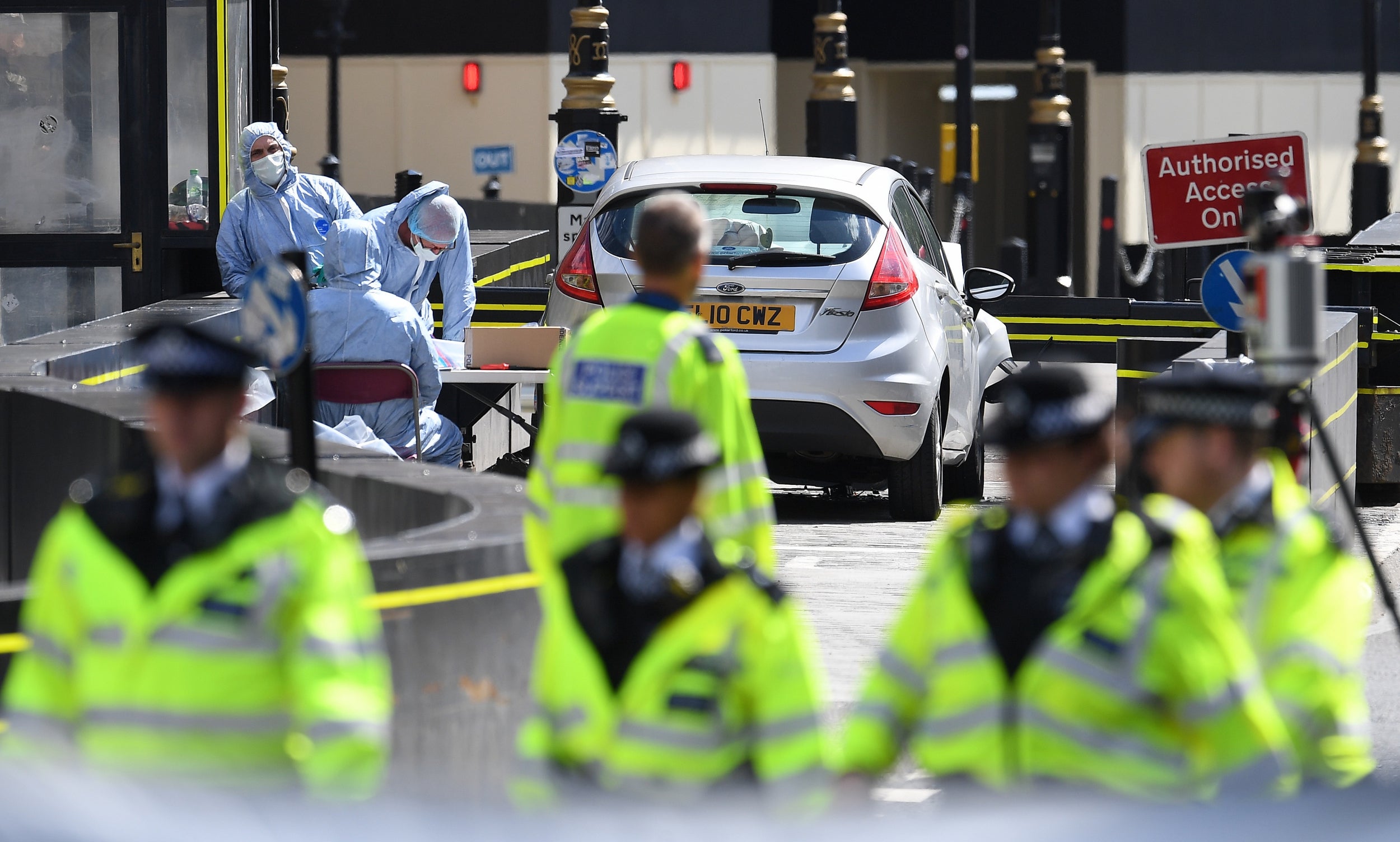I'm not surprised most terror suspects in the UK are white – we've been expecting to see this change for a while
Many of the materials now used by far-right groups such as National Action mirror the tactics of Isis, asking recruits to join 'white jihad' to 'cleanse Britain of parasites'

New figures released by the Home Office have shown that the number of white suspected terrorists being arrested in the UK has overtaken the number of Asian terror suspects for the first time in over a decade. White suspects now account for 38 per cent of terror-related arrests, followed closely by Asian ethnicity individuals at 37 per cent, and then black suspects at 9 per cent.
While this may surprise a lot of people, those in the counterterrorism and countering violent extremism (CVE) fields have long predicted this shift in terror dynamics in the UK. Just last month, the former head of the Metropolitan police’s counterterrorism unit, Mark Rowley, said that the UK had not yet “woken up” to the far-right threat.
In December 2016, National Action became the first far-right group ever to be declared a terrorist organisation in the UK. Rowley described how the neo-Nazi and white supremacist group had “a strategy for a terrorist group” with online materials coaching its members on how to create discord and division in communities, as well as how to evade police surveillance.
In fact, many of the materials produced by National Action seem to be little more than a close imitation of Isis propaganda, including the mirroring of key elements such as a play on victimhood narratives and snippets of the group’s members participating in combat training. The far-right organisation even mimicked the language of Islamist terror groups with pictures and videos that urged members to participate in a "white jihad" to "cleanse Britain of parasites".
When asked what National Action stood against during a trial earlier this year, Robbie Mullen, a now reformed far-right extremist replied: “Basically everyone… Jews, blacks, Asians, every non-white race” – what they wanted was to achieve a “white Britain by any means necessary…war, anything.”
This totalitarian, black-and-white view of the world is one that National Action shares with Islamist groups, who make no nuances between dar al-Islam (the land of Islam) and dar al-kufr (the land of infidels), rendering everyone outside of dar al-Islam a fair target. While one faction employs religious justifications, the other plays up on race to create an “us v. them” narrative. Yet both are deeply invested in the success of the other, mutually reinforcing their narratives to create a self-fulfilling prophecy.
As the threat from this reciprocal radicalisation grows, we must be wary not to get too preoccupied with the perceived dichotomy of “white” versus “Asian” terror. Far-right and Islamist terror groups should not be seen as opposite extremes on a spectrum, but rather as one and the same brand of extremism – one that wishes to sow division and conflict among communities under the guise of protecting “their” people from a perceived threat. While differentiating between the two factions is reasonable and warranted, it must be accompanied by the acknowledgement that neither is that different from the other.
In the end, the only plausible motivation that remains for those who would support either faction of extremist groups appears to be a deep-rooted desire to disrupt the international order. A divided, weakened liberal world turning in on itself is the ultimate goal of both far-right and Islamist groups, and our strategy to fight both must be to strengthen those very values of pluralism, democracy, and freedom that they so despise.
Muna Adil is a researcher at Quilliam International

Join our commenting forum
Join thought-provoking conversations, follow other Independent readers and see their replies